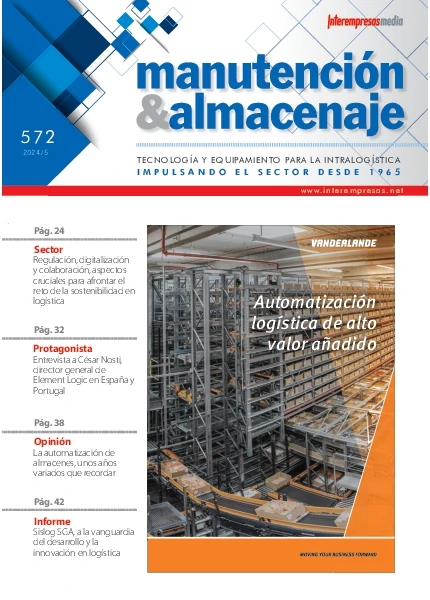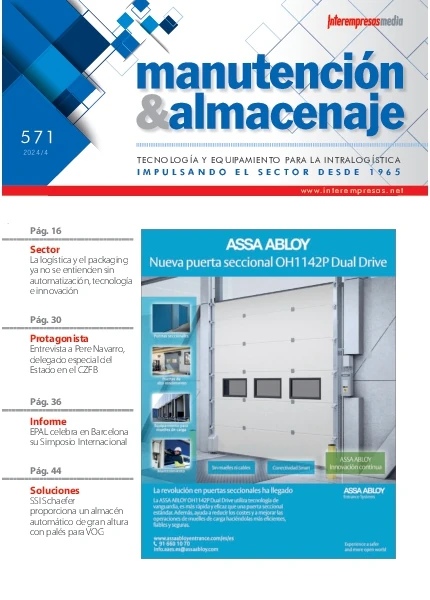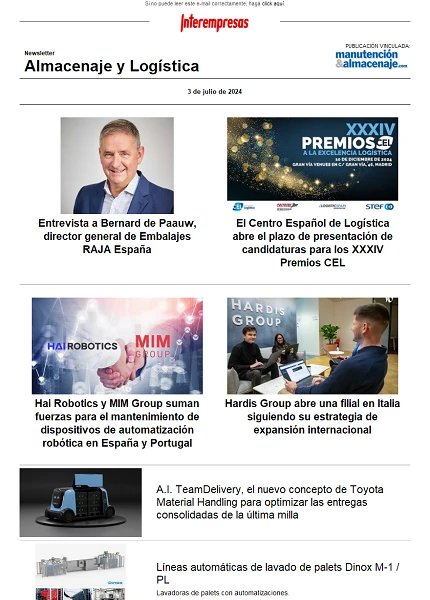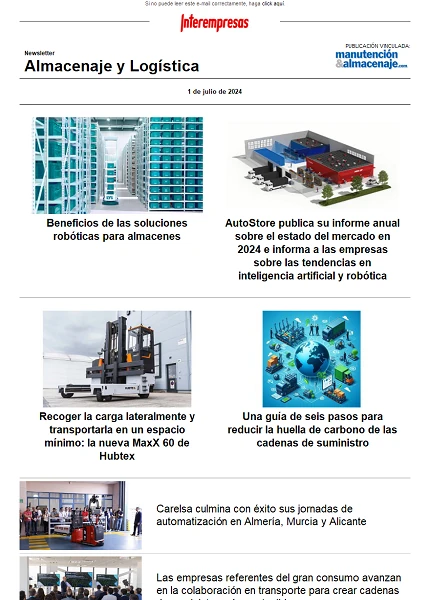Are far of an efficient urban distribution and the collaboration of all the agents involved is essential
Problematic of the urban distribution. The logistics of the last mile
Jaime Looks Galiana, technical director,
From a logistical perspective, the problematic of the urban mobility involve a fault of profitability of the fleets because of a descent of the commercial speed of the cities that hampers the delivery and collected in the times pactados. We run the risk of not fulfilling with the times pactados in the service with the customer. The apparition of some commercial schedules, conditioned by the windows of delivery so adjusted, that together with the development of the islands peatonales cause us a big ‘chaos' organisational in the ordination of the flows of commodities, complicates even more the situation.
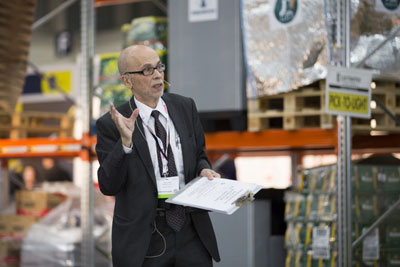
How realizar an efficient logistics in the cities?
The most exact definition on this serious section can answer to the questions who realizar the last mile? The ultimo kilometre? Who is the manager? Until which point like company have to be involved? Who commissions of the control? The answers are not so easy as it seems, as the implications are complex in the appearance of the logistical cost.
A solution would go through the condition that I know copper a canon in concept of the logistical cost that this type of service supposes. But they go back the questions. Who determines this canon? It has to include environingingmental appearances? They have to involve more the public organisms? The studies realizar to date to international level, indicate us that the delivery capilar can arrive to a cost of some 100 euros. This value has to take into account with the value added that it allow this product and like this can mark a politics of minimum request.
To finish to complicate it, adds the set up of other marketing venues, as it could be the delivery capilar motivated by the e-commerce, that supposes an answer of the and-logistics much more complex, and that will add problems of difficult solution. It considers that in the relations Business to Business (B2B) would not exist the logistical problem of distribution capilar as also serious in the Business to Consumer (B2C), in appearances of movements of electronic files (reservations of aeroplane, of hotels, etc.), but yes would find us with the problem, instead, in the case of a physical delivery home of a final customer.
The pilot experiences that have come developing in diverse cities on the one who can realizar the deliveries in the cities, have used, in some cases, kiosks of presses for the delivery of available products by catalog. In United States an agreement with the gasolineras has allowed that the collected final of the last kilometre realizar it the own final customer going through his gasolinera nearer and that he had decided. But these are experiences that improve the final distribution B2C and no the B2B.
The process of constant improvement of the urban distribution in the cities at present, is scheduling through the improvement of the organisation of the routes, causing that with the trazabilidad, associated to the connectivity and visibility, will allow a very agile negotiation, and will be able to answer with a greater quality of service. This advance in the quality of service, will be accepted with one accord with the final customer, and will allow to the company reduce part of the logistical cost end in the delivery.
All this supposes a strategy of market, of channel, of available zone, etc... That it allow focalizar the problems for the continuous improvement of the process. The research of a schedule of delivery by time window conditioned by the system of urban distribution, can carry to agreements so sugerentes like the one to offer a discount by deliveries in schedules of minimum conflictivilidad, together with the peculiarities of trazabilidad in real time to know the possibility to arrive to time.
All this could achieve with programs of optimisation of routes, that have by final aim fulfil with the schedules of programmed or planned windows requested by the customer. The service to the customer has to be flawless.
Effects in the reverse logistics of the Urban distribution of Commodities
All the experiences of delivery of the last mile or kilometre, have to value the incidence of the possible return of the products and is here where appears the reverse logistics of the returns. No only in ecological appearances, green or environingingmental but in the own management of the optimisation of the returns what supposes the greater challenge to the level of quality of service.
The reverse logistics, or as it knows him internationally ‘Reverse Supply Chain', covers all the wide fan of the flow of products and complementos that initiates after the delivery of the primary supply and that, known traditionally by the name of ‘returns', protects the optimisation of this reverse flow of products and packagings analysing all the possibilities: from the reuse in the Supply Chain, repair, catering, re-manufactura partial, recycled of raw materials, until arriving to the definite elimination. In each specific case, will study and will decide what, how and when is the most convenient to apply.
Participation of the distribution in the urbanismo of the cities
The planning of the design of the cities, his urbanismo, his connections intermodales, and other agents involved, condition us in the use of the infrastructures. The cities are each more amicable. They appear the problems for the distribution of the islands peatonales as well as of the historical helmets that they are rehabilitated. This causes a series of needs very important of supply to the inhabitants and to the shops of vicinity, that have to be covered by the companies of urban distribution, and that the local authorities, have to take into account in the design and planning of the public spaces.
The set up of processes of deterrence by part of the local authorities on the entrance of trucks in the urban zone, with the creation of logistical centres in which it realizar the split of load, allows a more restricted accessibility and with vehicles smaller with schedules more restricted or wider according to the type of unit of load.
The proposal of nocturnal services, involves that the vehicles are electrical, in addition to that the operations of load/downloads can be realizar in little time and with conditions of helps of elements of maintenance, as they would be the carts and ramps elevador among others, that speed up the process with hygiene and without environingingmental impact.
Have developed institutional ideas in diverse European countries, in which the terminal of transport has been built by the own city council that puts it to disposal of a logistical operator designated by contest with the condition that it will be an operator in scoop for the delivery and collected in this city. Besides the electrical vehicles attendants of the distribution, have been purchased by the own city council that has yielded them to this operator so that it do the operations inside the city. On the other hand the local entity, subsidises with a determinate amount by package so that the logistical costs are minimum.
To this experience it is necessary to add the need that the legislations in the field of design of commercial infrastructures involve a double warehouse connected internally and enclosed that allow to leave the commodity, for example at night with an independent door, so that the next day they can happen the commodity between the warehouse and the shop. This involves the possibility of utilisation of the zones of load more next to the shops, properly signposted and that it can be the lane bus-taxi that in hours ‘fence in', find but near of the shop improving the service of attention to the customer.
Other experiences have been realizar using the lines of metre, that by the nights and at the expense of reduction of hours of maintenance, have served to realizar proofs. they are complementing With the set up of tunnels that go to allow the utilisation of a species of skilled oil pipelines in special containers that displace inside of these installations and underneath of the city.
Remains a lot for working and still are far of an efficient urban distribution. The collaboration of all the agents involved is essential. The previous step is to recognise this need of collaboration to attain a way of win-to-win for all.

